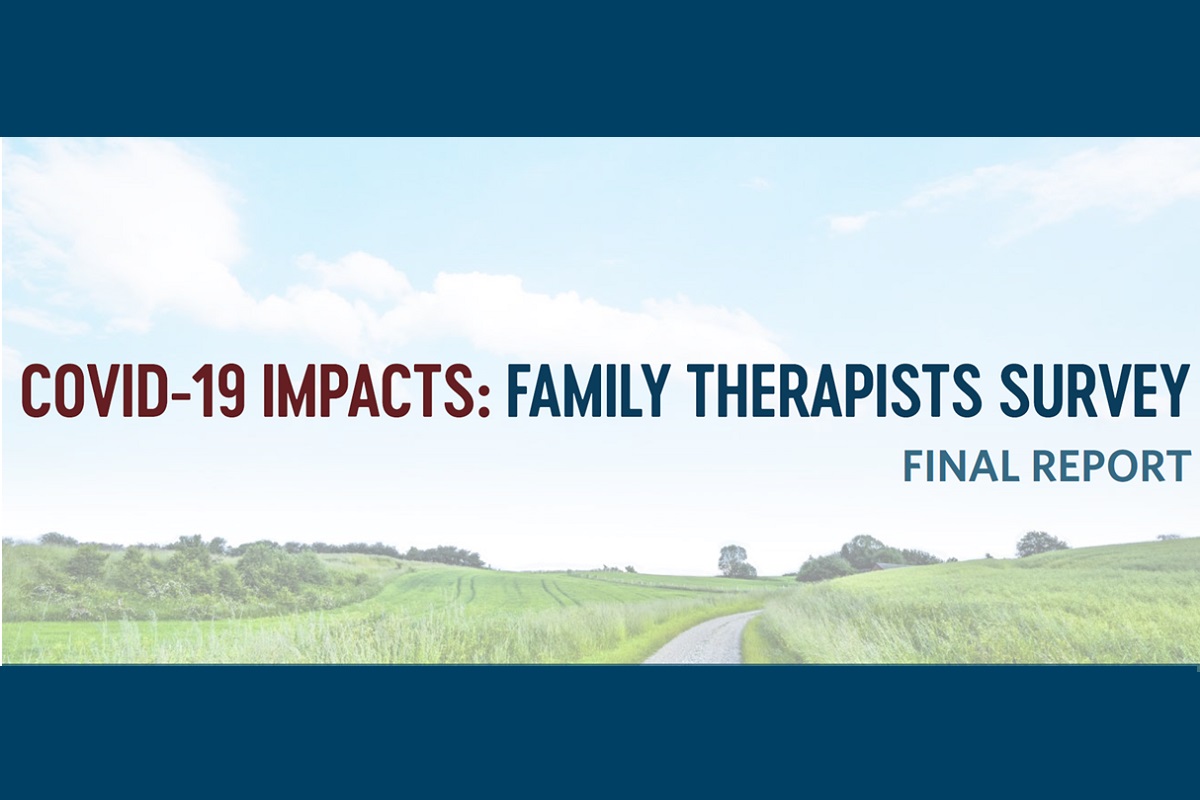
December 6, 2021
COVID-19 IMPACTS: Family Therapists Survey – Final Report
Final report on the findings from the COVID-19 IMPACTS: Family Therapists Survey.
December 6, 2021
COVID-19 IMPACTS: Family Therapists Survey – Final Report, Canadian Counselling and Psychotherapy Association (CCPA), the Canadian Association for Marriage and Family Therapy (CAMFT) and the Vanier Institute of the Family (VIF) (December 2021). Link: https://bit.ly/3GrpmiZ.
To enhance our understanding of the impact of COVID-19 on therapists and their clients, the Vanier Institute of the Family collaborated with the Canadian Counselling and Psychotherapy Association (CCPA), the Canadian Association for Marriage and Family Therapy (CAMFT) and the Vanier Institute of the Family (VIF) to conduct a crowdsourced survey of counsellors and psychotherapists who work with couples, families, children and/or adolescents.
Jointly funded by CCPA, CAMFT and VIF, with additional in-kind contributions from VIF, the COVID-19 IMPACTS: Family Therapists Survey was conducted over two cycles (Cycle 1, from June 16 to July 7, 2020, and Cycle 2, from May 17 to June 30, 2021). The survey explored the challenges and opportunities faced by therapists and their clients, with gender and age group comparisons, as well as geographic breakdowns.
The goals of this survey were to:
- Increase our understanding of therapists’ experiences with the pandemic, including some of the challenges they have faced
- Improve our understanding of the changing needs of therapists and the kinds of targeted supports that can be provided to increase their capacity and facilitate their well-being
- Increase awareness of the needs, challenges and obstacles faced by the clients of therapists (i.e., couples, families, children and adolescents who have sought and received therapy) during the pandemic
COVID-19 has transformed the way therapy is being delivered in Canada
Since the beginning of the pandemic, therapists have joined many workers in the shift to remote work. By the time Cycle 2 data was collected in summer 2021, more than nine in 10 (92%) said that they had worked from home since March 2020 (only 25% had been doing so before the pandemic) and half (48%) had taken training to provide virtual therapy, up from only one in five pre-pandemic. One benefit of this shift is that it facilitates therapists practising outside their province/territory, which four in 10 (42%) said they had been doing by summer 2021.
Therapists were more likely than the general population to report very good/excellent mental health, though their well-being declined between survey cycles
While several therapists reported negative impacts on their well-being, this was not to the extent measured among the general population. It is possible that their knowledge and training related to mental health has some protective effect. There was a decline in the proportion with “very good/excellent” mental health from 52% to 43% between cycles, reflecting a similar downward trend seen among the general population, and a slight increase in those who feel like they are managing life worse (from 27% to 34%).
Fortunately, their family relationships and social connections remained strong across cycles. Most therapists in Cycle 2 said they were having meaningful conversations with their spouse/partner more often (63%), they felt closer to their spouse/partner (60%) and they are supporting each other well (82%), with no major decline across cycles. In Cycle 2, more than one-third said they were spending more time communicating with their spouse/partner (36%) and/or children (33%), compared with before March 2020.
Less experienced therapists were more likely than experienced ones to see a negative impact on their mental health
The more experienced therapists were more likely to rate their current mental health as excellent or very good than the less experienced therapists. In general, the mental health of all three groups was worse in Cycle 2 compared with Cycle 1.
Client well-being was also negatively affected, with some clients refusing virtual therapy
According to responses from therapists, COVID-19 had a negative impact on the mental health of their clients. Most clients who were negatively affected by COVID-19 had concerns about anxiety (69%), loneliness/social isolation (57%) and depression (54%).
Therapists reported that some clients had refused therapy, with the main reason for their refusal being clients’ discomfort with remote therapy methods. The proportion of therapists who said that their clients had refused therapy because they were uncomfortable with phone therapy stayed the same across cycles, but they reported an increase in the percentage across cycles of clients who refused therapy due to their discomfort with video sessions. This could be due to a growing share of clients having experienced this method of therapy during this time.
The COVID-19 IMPACTS: Family Therapists Survey has provided important insights on practitioners’ experiences and well-being, on how they have adapted their practice (and how these adaptations have fared), and on how their clients are doing and reacting to the changing ways therapy has been provided since March 2020. COVID-19 has affected us all, and therapists who support the well-being of Canadians and their families are not immune to the social, health and economic impacts of the pandemic. Findings from this survey – one of the first to explore the impact of COVID-19 on therapists are helping to provide a clearer picture and new understandings of how to best support the well-being of therapists in Canada.
This survey was jointly funded by CCPA, CAMFT and the Vanier Institute of the Family.
Stay in the know
InfoVanier
A monthly newsletter of research, resources, and events
Linktree
Get alerts on new Vanier Institute publications, events, and announcements
